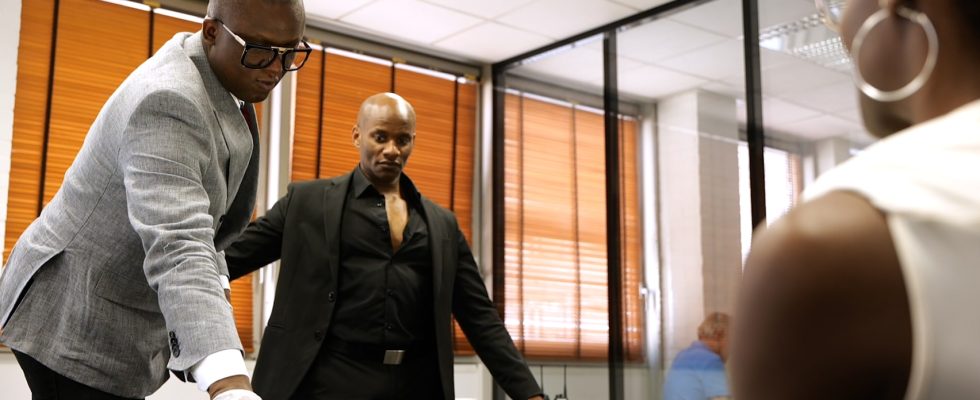With one arm, Harding Goris grabs and gently controls one of his students. With the other, he pushes aside the fake grenade he has just found in his pocket, pretending to call for reinforcements. In the classroom of the Envergure training organization, in the heart of the 12th arrondissement of Paris, a dozen or so trainees observe the scene while taking notes. “In this type of case, you isolate the individual to protect the crowd, you continue the palpation to detect possible other weapons, and above all, you raise your hand directly for the judicial police officer to come and help you”, describes the teacher. Throughout the practical exercises, this security officer recalls “the basics” of palpation: consent must always be requested from the person concerned, the search carried out by an officer of the same sex or, failing that, be carried out using a magnetometer which will detect potentially hidden metals. “We do not do anything: palpation is governed by very strict laws”, he insists, before listing the various texts which govern this practice.
Around the table, the students of the day are, for the most part, no more than 20 years old. A few months ago, none of them were interested in the security professions. Recent graduates, students in BTS, law, language sciences or even nursing school, they will benefit from 106 hours of training, at the end of which they will obtain an approval which will allow them to practice as security guards. during the Olympic Games (OG) in Paris. If this precious sesame will only be valid until September 2024, they will then be able to follow additional training, and obtain a diploma of prevention and security officer (APS).
“It’s the dream summer job”, testifies Antoine from the height of his 20 years. On the upper floor, another group is training for a specific exam on fire safety issues. Here, the average age is higher: in a situation of professional retraining after a first career as a banker, installer of works of art, tour guide or VTC driver, the students have for the most part been guided towards this training by Pôle emploi, commissioned by the State to recruit and train 30,000 people in order to ensure the safety of the Olympic Games. Their training of 650 hours, longer and more complete, will lead to an APS diploma. Within the school, everything has been thought out to train these trainees in practical gestures: several digital beacons have been installed in the corridors to carry out round simulations, a fictitious security post including automatic doors, fire alarms or fake Kalashnikov has was installed on the top floor for several tens of thousands of euros, and an armed fire hose is even available on the ground floor to practice stopping the outbreak of fire.
An “extensive morality investigation”
Less than a year before the Paris Olympics, and while more than 10,000 positions are currently vacant in the security sector, these future agents should have no trouble finding a contract when they leave school. But this tense situation does not justify an unfiltered recruitment of students: to participate in approved training, the latter – and sometimes their families or loved ones – have thus been the subject of “an extensive morality investigation” , according to Najat Chamali, security supervisor at Envergure, who recalls that “the State cannot take any risks”.
In particular, they must have a clean criminal record, and not be linked to any current legal case. “If some show violent behavior during the course, such as fights or insults, they will be directly excluded,” adds Najat Chamali. Once they have obtained their diploma, they can expect a remuneration of “15 euros net per hour on average”, excluding bonuses and overtime – the result of a salary increase of 7.5% recently negotiated by professionals in the sector in prediction of the Olympics.
